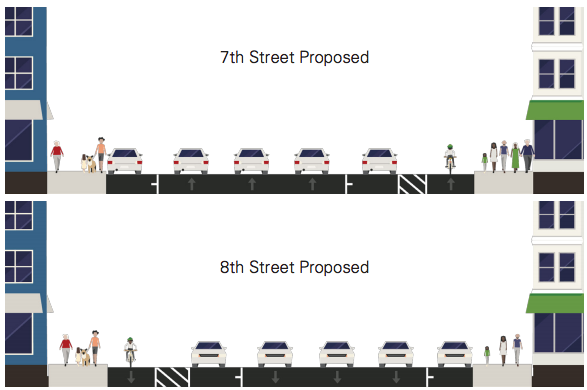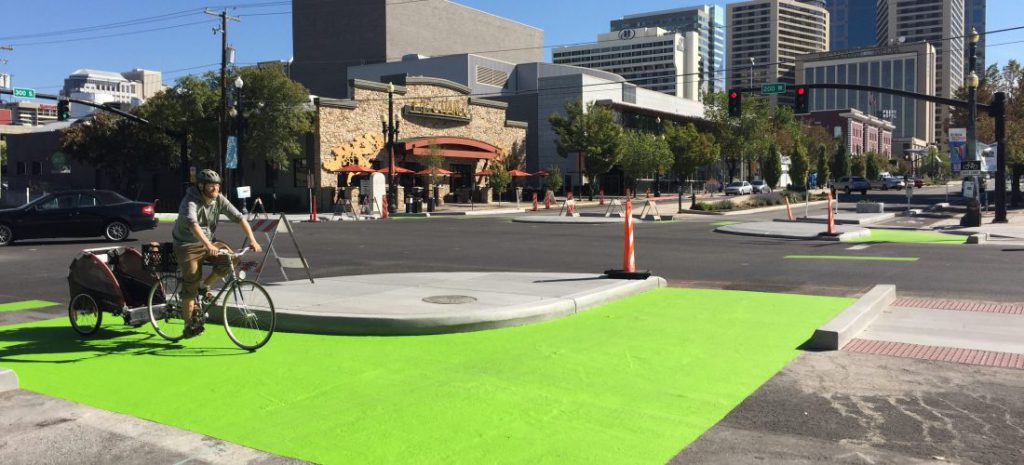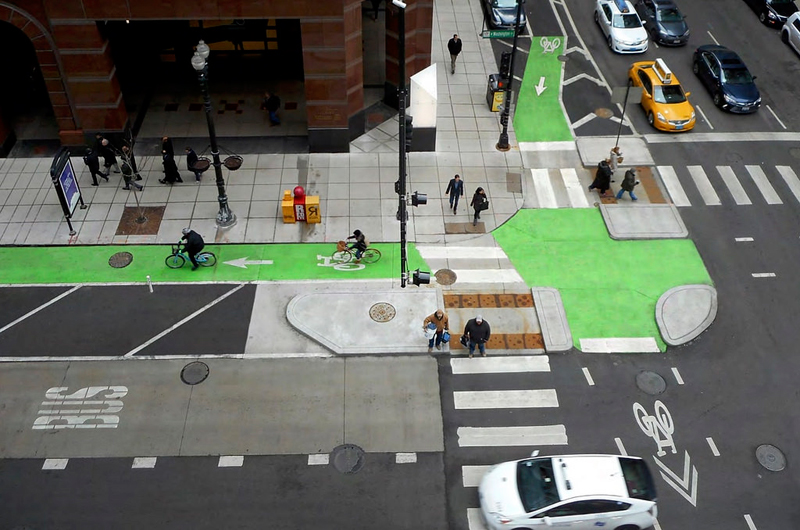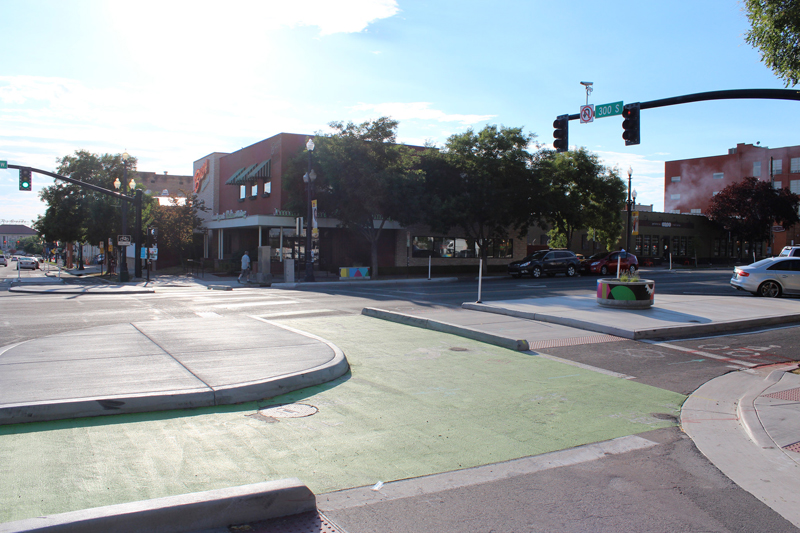We have an exciting Election Day coming on Nov. 8, where San Francisco voters will have a chance to weigh in on everything from the U.S. presidential race to half of the Board of Supervisors. There are additionally 25 local ballot measures, making 2016 a critical year where your voice and your vote matters.
Every year, your San Francisco Bicycle Coalition posts candidate questionnaires and polls our membership to inform our slate of endorsements. We are proud to endorse the following candidates and ballot measures this year.
Yes on Proposition G – Holding SFPD Accountable
Proposition G was sponsored by Supervisors Malia Cohen and London Breed, and it passed the Board of Supervisors unanimously. This measure improves oversight of San Francisco Police Department (SFPD) by establishing an independent Department of Police Accountability, which would take over the current Office of Citizen Complaints (OCC). Along with advocating for SFPD to use smart, data-driven traffic enforcement, we also encourage our members to file a complaint with OCC if they had a negative interaction with an officer. This process has not helped to improve SFPD’s responsiveness to bike-related issues such as theft, double-parking in bike lanes or bike-involved collisions. We believe increased oversight and accountability through passing Prop G will make a difference.
Yes on Propositions J and K – Invest in Transportation
These two measures go hand in hand to increase sales tax and use these revenues for improving transportation and increasing services for people who are homeless. We recognize that supporting a sales tax measure isn’t the easiest decision, and so we worked with others to fight for strong investments in safe streets and affordability programs. This measure brings critical dollars to transportation by funding programs like Free Muni for Youth and protecting against Muni service cuts. It also invests dollars into safe streets, bringing in over $12 million a year for bicycle and pedestrian projects.
Yes on Measure RR – Better BART Helps Everyone
This regional measure asks Bay Area voters to approve a $3.5 billion general obligation bond to fund critical BART infrastructure and improve station access. We know more of our members are relying on connecting their bike to BART and that a transit-friendly city is a bike-friendly city. BART needs to invest in their system now to ensure the future of their system is safe and reliable. Having a functioning transit system benefits biking by reducing reliance on car trips and increasing the different ways to get around the Bay Area.
No on Proposition L – Keep SFMTA’s Budget Process Working
This measure proposes two changes that affect the SF Municipal Transportation Agency (SFMTA): Splitting appointments to their board between the Board of Supervisors and Mayor and decreasing the budget approval threshold from seven votes on the Board of Supervisors to six. We acknowledge there are merits in split appointments that would put the SFMTA in line with other boards and commissions, (e.g., the Police Commission, the Planning Commission), but as the Board of Supervisors has never rejected a Mayoral appointment, it’s unlikely this change would mean much. The change in budget approval process, however, is troubling. This makes rejecting the SFMTA budget a greater possibility. The worst case scenario of an SFMTA budget being rejected becomes a more real possibility, which could cause unrecoverable delays to critical bike and transportation projects.
San Francisco Board of Supervisors
District 1 Supervisor
Unsurprisingly, member polling was strongly in favor of Andy Thornley, who has had a lifelong commitment to making streets work for people first. We are also endorsing Sandra Lee Fewer, whose time on the School Board included sponsoring and passing a resolution in support of Vision Zero.
District 5 Supervisor
We are endorsing the incumbent London Breed, who has consistently supported smart, data-driven traffic enforcement and helped to move important bike projects like Masonic Avenue and Fell and Oak Streets forward to construction.
District 7 Supervisor
We are endorsing the incumbent Norman Yee, who has been a vocal leader for Vision Zero. He chairs the city’s Vision Zero Committee and recently sponsored and passed legislation to increase the use of telematics technology in city vehicles. This will help track these vehicles to help reduce collisions and identify dangerous driving behaviors in City vehicles.
Districts 3, 9 & 11 Supervisor
We are not endorsing candidates in these races. Member polling did not strongly favor any candidate. Additionally, since none of the leading candidates who answered our candidate questionnaire have held office before, they lack strong track records of advocacy around biking and transportation issues that our members care strongly about.
BART Board District 7
The incumbent Director Zakhary Mallett is consistently a vocal opponent of bike access on BART. Our endorsed candidate Lateefah Simon, on the other hand, is on the record in support of making access to BART a priority. We believe she will bring needed change on the BART Board to ensure people with bikes can continue to rely on BART to help them get around.
State Assembly District 17
David Chiu has consistently been a strong vote for biking and transportation improvements during his first term in Sacramento. As Assemblymember, David Chiu has also been an outspoken supporter for Automated Speed Enforcement and has been helping to get draft legislation ready for next year.
State Assembly District 19
Phil Ting was this year’s Golden Wheel Awardee, after championing several pieces of legislation in Sacramento to increase biking and walking. Read more about the legislation he authored to ban bridge tolls for people who bike and walk.
State Senate District 11
Both candidates Jane Kim and Scott Wiener have a long history of advocating for better biking and making sure there are safe, affordable ways to get around as Supervisors. While our board did consider an endorsement in this race, it was clear from our member polling that both candidates are equally popular, and that we’re fortunate to have such bike-friendly candidates vying for State Senate. We believe that either candidate would represent bike-friendly policy positions admirably in Sacramento and therefore have made no endorsement in this race.




